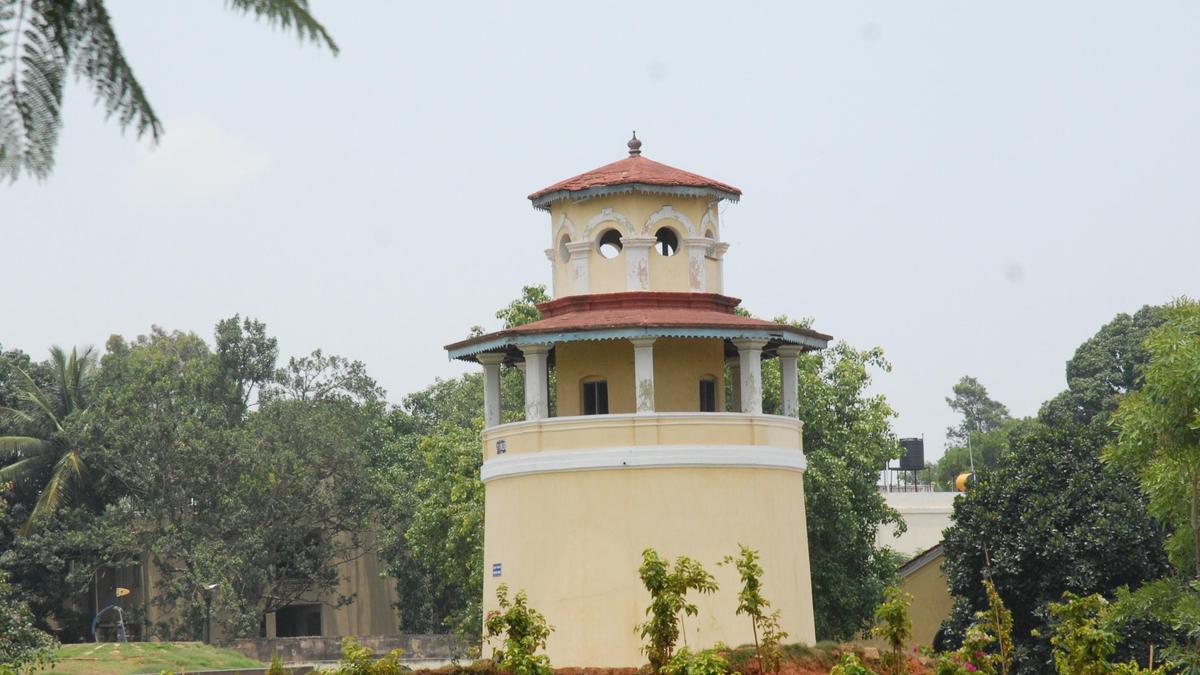ARTICLE AD BOX
Last Updated:October 24, 2025, 05:54 IST
The Chief Justice of India stressed that the Supreme Court’s recognition of the NOTA right ensures the electorate has a 'meaningful choice and the ability to express dissent'

The CJI, who is on a four-day official visit to Bhutan, was speaking at the Royal Institute of Management on ‘Courts and Constitutional Governance’ as part of the Fifth Wisdom for Future Talk Series hosted by JSW School of Law. File pic/PTI
Chief Justice of India BR Gavai has reaffirmed the significance of the “None of the Above" (NOTA) option for voters, highlighting its contribution to strengthening the democratic process and empowering citizens.
The CJI, while speaking on constitutional governance, stressed that the Supreme Court’s recognition of the NOTA right ensures the electorate has a “meaningful choice and the ability to express dissent".
Context and Landmark Judgment
This pivotal right was established by the Supreme Court in its landmark judgment on September 27, 2013, in the case of People’s Union for Civil Liberties (PUCL) v Union of India. The verdict mandated the Election Commission of India (ECI) to introduce a NOTA button on Electronic Voting Machines (EVMs) and ballot papers, marking a major step in electoral reform.
Prior to 2013, voters wishing to reject all candidates had to record their abstention using Rule 49-O of the Conduct of Election Rules, 1961. This process compromised the secrecy of their vote. The Supreme Court’s ruling explicitly protected this secrecy, emphasising that the right to vote implicitly includes the right not to vote and that both must be safeguarded under the fundamental right to freedom of expression (Article 19(1)(a)).
The core rationale behind the judgment was to compel political parties to nominate candidates with higher moral and ethical values. The Supreme Court viewed NOTA as a necessary tool to express collective disapproval, thereby ensuring that the representative governance of the country improves.
Impact and Continued Debate
The NOTA option was first implemented in the state assembly elections in 2013 and subsequently in the 2014 Lok Sabha elections.
Symbolic Dissent: While a vote for NOTA does not currently result in the disqualification of candidates or trigger a re-election (the candidate with the highest votes among the contesting candidates is still declared the winner), its growing count acts as a visible metric of public dissatisfaction.
Recent High Tally: The highest NOTA tally was notably recorded in the Indore Lok Sabha constituency in the 2024 general elections, crossing the 2-lakh mark. This figure underscores the electorate’s use of the option to signal deep-seated dissent.
CJI Gavai’s latest statement reinforces the foundational principle of this verdict: that an informed and empowered citizenry is crucial to the vibrancy of a democracy, and the ability to register a negative vote is an essential element of full citizen participation and political accountability.
The CJI, who is on a four-day official visit to Bhutan, was speaking at the Royal Institute of Management on “Courts and Constitutional Governance" as part of the Fifth Wisdom for Future Talk Series hosted by JSW School of Law.

Pathikrit Sen Gupta is a Senior Associate Editor with News18.com and likes to cut a long story short. He writes sporadically on Politics, Sports, Global Affairs, Space, Entertainment, And Food. He trawls X via ...Read More
Pathikrit Sen Gupta is a Senior Associate Editor with News18.com and likes to cut a long story short. He writes sporadically on Politics, Sports, Global Affairs, Space, Entertainment, And Food. He trawls X via ...
Read More
First Published:
October 24, 2025, 05:54 IST
News india A Vote Against All, Yet For Democracy: CJI Gavai Puts Spotlight Back On NOTA
Disclaimer: Comments reflect users’ views, not News18’s. Please keep discussions respectful and constructive. Abusive, defamatory, or illegal comments will be removed. News18 may disable any comment at its discretion. By posting, you agree to our Terms of Use and Privacy Policy.
Read More

 16 hours ago
6
16 hours ago
6







 English (US) ·
English (US) ·